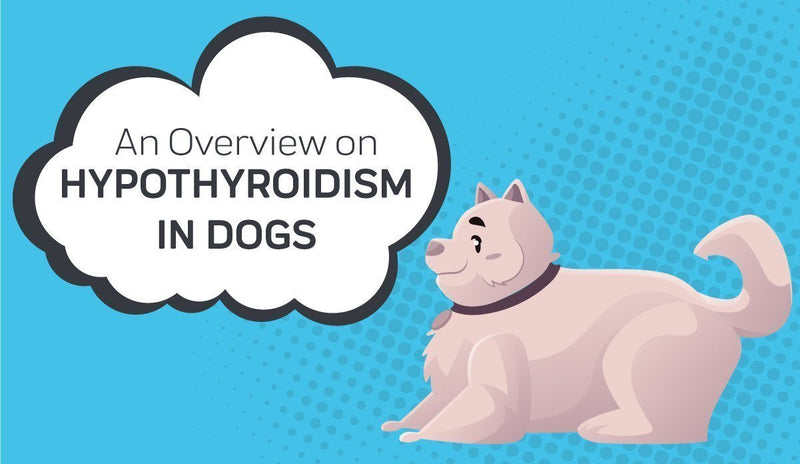- How Can My Dog Get Heartworms?
- What Are The Symptoms of Heartworm in Dogs?
- How Heartworm in Dogs Is Diagnosed?
- How to Treat Heartworm in Dogs
- How To Keep Your Dogs Safe From Heartworms
- Conclusion
You don't want your pup to get bit by an infected mosquito, nor do you want them to carry parasites for the rest of their life. Fortunately, veterinarians can detect signs of heartworm disease early on. However, it's important to be informed so that you know when to take your dog to the doctors.
The article will cover everything you need to know about heartworm infection in dogs and treating this condition. You'll learn about what signs to look for, heartworm testing, and how to prevent this condition in your dog.
How Can My Dog Get Heartworms?
Before going into what heartworm disease looks like in dogs, we'll dive into how your pup can get the condition.
The scientific name for this disease is dirofilariasis, the infected mosquito's name from which the illness originates. The bugs pick up heartworm larvae from canid animals (i.e., dogs, foxes, wolves) and spread them to new hosts.
The parasites live on the mouth of the mosquitos and go from one animal to the next. Within 10 to 14 days, the larvae reach an infectious stage. When the mosquito bites your puppy's skin, the young larvae enter the blood vessels. These parasites take about six months to become adult heartworms.
These worms are commonly found throughout the continental United States and in various places around the world. Wherever mosquitos could potentially grow, your dog is at risk of contracting the disease. Fortunately, heartworm disease is not contagious. If an animal has been infected, the only way they can spread the condition is if a mosquito eats their blood and then bites another dog.
In infected dogs, the lifespan of adult heartworms is 5 to 7 years. Unfortunately, if you don't treat your dog for this disease quickly, they could get reinfected the next year. But, how can you spot the signs of the parasites in your animal?
What Are The Symptoms of Heartworm in Dogs?
You'll only notice symptoms of heartworm disease if you pay close attention to any changes in your infected dog's behavior. In most cases, they won't show heartworm disease symptoms until the later stages of the illness.
The worms grow and develop in the lungs, heart, and surrounding blood vessels. Among other things, you'll see:

- Weight loss
- A mild, persistent cough
- An unwillingness to go for walks or exercise
- Unusual fatigue after exercise
- A lack of appetite
If you leave the heartworm infection untreated, your dog's stomach will swell, and they could suffer from heart failure. Though it’s possible for an animal to survive heart failure, most cases end up in unfortunate death.
Many adult heartworms in an infected dog lead to blocked blood vessels and then caval syndrome.
Symptoms of caval syndrome include:
- A sudden spike of labored breathing
- Pale and discolored gums
- Bloody or dark brown colored urine
When infected dogs do not receive heartworm treatment, their chances of survival are extremely slim. They'll most likely die from the adult heartworms blocking their blood vessels and causing heart failure.
Fortunately, your vet can treat the condition once you bring your dog in. Plus, if your pet has the condition, they won't infect you or your other animals unless a mosquito transfers the bugs from one host to another.
If you see signs of the condition in your animal, it's time to take them to the vet. When you go to the appointment, you'll learn more information about the procedures necessary for treatment.
How Heartworm in Dogs Is Diagnosed?
Heartworm disease is a progressive illness that only gets worse the longer you leave it untreated. You should take your dog in to be tested once a year. Since adult heartworms circulate in the bloodstream, your pup will need to have blood drawn.
When you go to the vet's office, make sure that your dog is ready to have their blood taken:
- Give them treats
- Bring their favorite toy
- Bring other gifts to make sure they're comfortable, like a blanket or chew stick.
When getting your pet tested for heartworm disease, you want to make the process as simple as possible for the doctor.
The vet will perform an antigen test on the blood sample. The test detects the specific proteins in these worms, which are also called antigens. The proteins are released into the bloodstream by adult heartworms that are living inside your dog. The professional level tests can pick up antigens from 5 months after the mosquito bites your pup.
Another test on the blood sample will detect whether microfilariae are present in the bloodstream. Fully grown worms only produce microfilariae. These creatures mate and produce the cells that the blood test picks up.
Because it takes six months for small heartworms to grow, this is the earliest that the second blood test can detect the creatures.
How to Treat Heartworm in Dogs
The Vet Visit
When it comes to heartworm disease, you'll want to get your dog tested and medicated right away. If you wait too long, your dog could suffer and potentially die. Keep in mind a few factors when taking your animal in to see a vet:
- When you started giving your dog heartworm preventive medicines
- How consistent you were in giving the heartworm preventive medication
- Whether you switched their medicine at any point
- If you've brought your dog to an area where heartworm disease is more common
- How long your heartworm season is
Treatment and Medication
If your dog is diagnosed with heartworm disease, it's not the end of the world. Drugs are available to cure your animal. The trade names of the two commonly used medications are Immiticide and Diroban. Both drugs contain arsenic and are FDA-approved to kill heartworms in dogs.
You'll want to make sure that your dog is resting before they go in to start stabilization. If they move around too much, the worms will go more quickly through the blood vessels and could hurt your animal. The stabilization process is critical before treatment can start. Otherwise, the worms will continue to grow and multiply until they overwhelm and kill your puppy.
Here's the general procedure when taking your dog to the vet to get treated:
- The doctor will deeply inject the medicine into the back muscle of your dog
- You'll get a topical solution called Advantage Multi for Dogs to get rid of microfilariae
One downside of getting heartworm disease treatment for your dog is it's expensive. You'll be spending money on multiple vet visits, blood tests, x-rays, and a series of injections. Plus, the arsenic in the drugs could potentially poison your animal. Side effects of the solutions include serious blood clots developing in your dog's lungs.
However, the process is worth investing in to save your pet's life.
Post-Treatment Tips
If your pup requires the medicine, you'll want to make sure that you're careful with them afterward:
- Monitor their condition
- Give them plenty of time to recover
- Restrict exercise: Even if your dog seems interested in going outside and being active, don't let them. Before the treatment, exercise and movement stimulate the movement of the worms through the bloodstream. After treatment, the drugs will physically affect your pup for a while and could cause them to hurt themselves if they strain too hard.
Once you've tested your dog for heartworm disease and cured the symptoms, it's essential to continue preventive care so that they don't become infected again.
How To Keep Your Dogs Safe From Heartworms
Use Medication with a Consistent Schedule
When your dog is infected with heartworms, you'll want to seek immediate medical attention. If you have to wait or don't have access to a veterinarian, consider getting heartworm treatment at a drugstore.
Heartworm prevention requires diligence and dedication from dog owners. The most reliable way to keep your dog safe is to utilize medication and stay consistent with the schedule. Set a day during the month when you know you'll have time to give your animal the medicine. Consider which day you're most available, and then administer the medicine on the same day every month.
Depending on the dog's age, your procedure guidelines will vary slightly:
Under six months:
- You can start heartworm prevention medication without first getting your dog tested.
- The parasites require six months to reach adulthood, so starting heartworm prevention medication beforehand gives you a good chance of killing off the creatures.
- Make sure that you continue to get your animal tested every six months
6+ months without prior heartworm preventive medication:
- Get blood work done on your dog before you start the medicine.
- If the tests come back negative, start on the pills right away.
6+ months with prior heartworm preventative medication:
- Continue to get your dog tested every six months to ensure they live their life heartworm disease-free.
Know the Environmental Factors

The surrounding area could put your dog at a higher risk for contracting the heartworm parasites. Try to keep your dog away from areas where there might be an infected mosquito. Unfortunately, it's hard to determine which places will have insects and whether they carry the infectious larvae.
From Texas to Florida, the southern United States has a higher concentration of the worms than other areas. Plus, if you live in an area affected by a storm, the winds could have pushed insects and pests that carry the heartworm disease to your home. Your best bet is to continue giving your dog heartworm disease medicine.
In most cases, the heartworm prevention medicine will be effective in killing the parasites. In some rare cases, your dog can still become infected. Missing a month of medicine or giving the dosage after a delay could lead to an infection. Some dogs won't make it easy for you to give them medicine. They'll spit or vomit the pill out. For those that use a topical cream, then your dog could lick it off.
Take Heartworm Preventive Measures Seriously
If you delay taking heartworm preventive measures, then your pup could be at risk. The heartworms take six months to develop, meaning that getting back on track after a monthly dosage could save your pup. However, if you've forgotten to give your dog medicine for a month or more, schedule a vet appointment right away. You don't want to risk your animal getting infected and becoming sick.
Conclusion

If you notice your dog exhibiting heartworm disease symptoms, don't hesitate to call a veterinary professional. A vet will take in your animal and get them onto the recovery track. The sooner you bring in your pet, the sooner their suffering will go away. You can also ask your vet questions about potential relief for your puppy as they recover from the intensive and invasive treatment.
Among other things, you can ask your doctor about CBD oil and treats for your pet to help ease their suffering. Because of the arsenic in the medicine, your animal could feel sick for a while after treatment. However, if you don't seek treatment, your pet will suffer greatly and could potentially die.
Taking your furry friend to the vet for heartworms is sometimes unstoppable. Be supportive and take care of your animal during the process, and you both will get through the hard times.
Don't wait until your puppy is intensely suffering. As soon as you start to notice symptoms, schedule an appointment with the vet.
The article above was put together by going through a variety of sources to check facts and statistics. The links below will lead to more information about the condition.
Sources:
Heartworm in DogsKeep the Worms Out of Your Pet's Heart

















